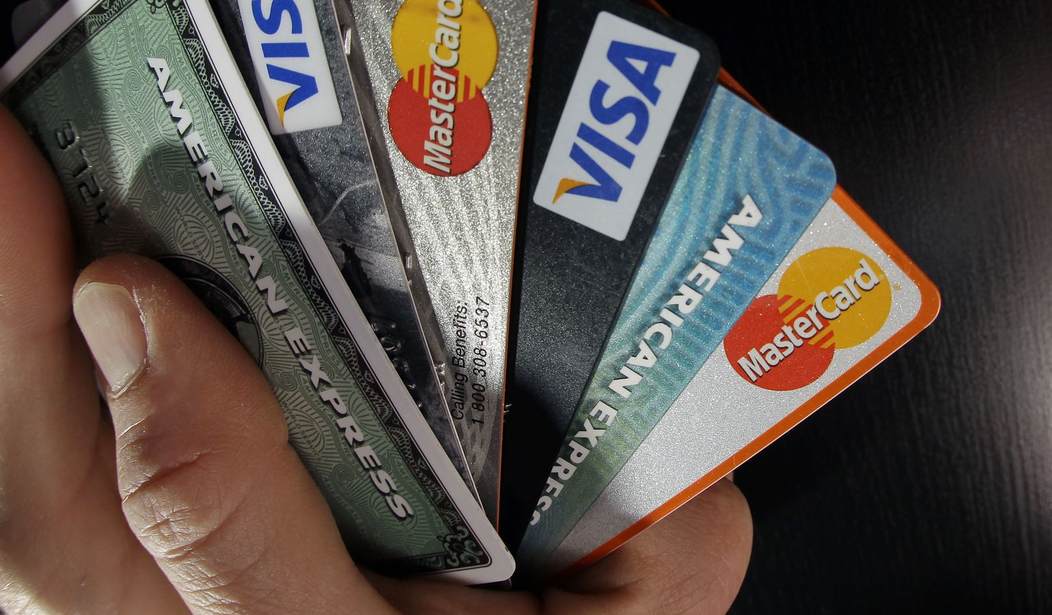An avalanche of consumer debt could come tumbling down unless a rising economy and slowing inflation suddenly materialize to rescue millions of Americans struggling to keep up with their credit card, auto, and home loan payments. Twenty million are even behind on their utility bills. According to the New York Federal Reserve headline, “Household Debt Rises to $16.90 Trillion; Credit Cards Pass Pre-Pandemic High.”
It was one thing to carry large credit card balances during the low inflation and booming economy before the pandemic. It is quite another thing to carry an even larger consumer debt with inflation outpacing earnings and economic growth stalled at around 1%. If consumers can’t grow their way out of debt through earnings, they will have to start servicing credit card interest rates that were once illegal under usury laws. And they have to do this with dollars that are worth less and less each month. With the cost of food up about 10%, what trade-off will people be willing to make between buying food for the family to eat and servicing credit card debt to keep a bank well-fed?
The sad political fact is that the Federal Reserve uses the year before presidential elections to make its most politically unpopular moves so as not to be seen as “interfering in an election cycle.” Well, that year is this year, and they are certainly doing politically unpopular things. Americans who have been drugged into debt for years by near-zero interest rates now have to face incremental interest rate increases deemed high enough to forestall further inflation. Households will have to readjust borrowing and spending or face default on debt and the ripple effect that creates.
The numbers are not pretty. According to the New York Fed, “Total household debt rose by $394 billion, or 2.4 percent, to $16.90 trillion in the fourth quarter of 2022, according to the latest Quarterly Report on Household Debt and Credit. Credit card balances increased by $61 billion to reach $986 billion, surpassing the pre-pandemic high of $927 billion; mortgage balances rose to $11.92 trillion, auto loan balances to $1.55 trillion, and student loan balances to $1.60 trillion. The share of current debt transitioning into delinquency increased for nearly all debt types.”
Recently, the collapse of Silicon Valley Bank, which funded a lot of tech and healthcare startups, made headlines. And shortly before that Silvergate bank, which was in the cryptocurrency world, collapsed. Each positioned itself on the cutting edge of the “new economy.”
A hedge fund manager who is not invested in the sector and doesn’t follow it told us that, in looking at the publicly available numbers, he was surprised no one spotted this bank being in deep trouble sooner. Even more surprising was that highly respected individuals in the business world were speaking well of SVB until shortly before its collapse. In round numbers, it seemed to have $16 billion it probably wasn’t getting back from borrowers and had to write-off and $16 billion to offset it. Such a bank is pretty much out of business. The little guys with money in the bank will be protected up to $250,000 by the FDIC, but what happens to everyone else? Probably a lot of start-ups will not survive long enough for their potential earnings to turn into actual earnings. This is the classic high-tech dilemma.
It appears poor managers making bad loan decisions moved SVB from a thriving zero-interest-rate business to a zero-asset business. While the government stepped in within 24 hours to take control of the situation, there will be a lot more to the story to come out in the weeks and months ahead. Tucker Carlson reported a number of stock sales by managers in the first quarter, which he thinks needs investigating.
Related: Financial Jitters After Silicon Valley Bank is Closed by Regulators
In the meantime, what of the risk to the millions of households behind their own personal debt bomb eight ball? There will be no government regulator to step in within 24 hours to help if things get really bad. Polonius, the dubious character in Shakespeares’ Hamlet said,
“Neither a borrower nor a lender be,
For loan oft loses both itself and friend,
And borrowing dulls the edge of husbandry.”
What will happen to the millions of consumers who aren’t too big to fail and are now being crushed under debt? And will the Federal government finally allow big politically connected financial institutions that fell short in “husbandry” to totally fail? Or will we continue to subtly train financial institutions to take risks that defy common sense, knowing taxpayers are standing by ready to step in and protect them for the “public good”? It will be interesting to see what the Biden administration’s next move will be and whether it matches the soak-the-rich rhetoric that has been on display this week.










Join the conversation as a VIP Member